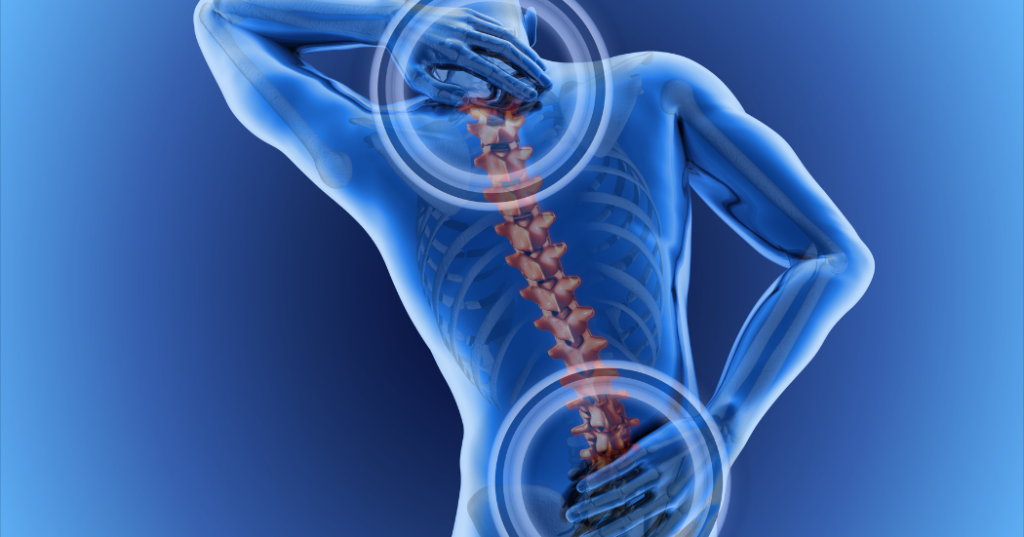In today’s fast-paced world, stress is a common occurrence that affects many aspects of our health. While we often associate stress with mental and emotional well-being, its impact extends far beyond that. Recent research has shed light on the intricate connection between stress and musculoskeletal health, revealing stress’s profound influence on our bodies. Understanding this link is essential for anyone seeking to optimize their overall well-being.
Exploring the Effects of Stress on the Musculoskeletal System
Stress is a powerful force that can wreak havoc on our bodies, including our musculoskeletal system. When we experience stress, our bodies release stress hormones such as cortisol, leading to increased muscle tension and inflammation. These physiological responses, when chronic, can have lasting effects on the health of our muscles, bones, and joints.
One of the most apparent ways stress affects the musculoskeletal system is through muscle tension. When stressed, we tend to hold our muscles in constant contraction, leading to muscle stiffness and discomfort. This sustained muscle tension can contribute to poor posture and alignment, setting the stage for musculoskeletal issues.
The Impact of Stress on Posture and Alignment
Our posture plays a crucial role in maintaining musculoskeletal health. However, chronic stress can disrupt this delicate balance. As stress-induced muscle tension persists, our bodies may gradually shift out of proper alignment, placing undue stress on certain muscles and joints. Over time, this misalignment can lead to chronic pain, reduced mobility, and an increased risk of injuries.
Furthermore, stress can profoundly impact the nervous system, which in turn affects our musculoskeletal system.
When stressed, our sympathetic nervous system, responsible for the body’s “fight or flight” response, becomes overactive. This heightened state of arousal can lead to increased muscle tension and a decrease in blood flow to the muscles. As a result, the muscles receive fewer nutrients and oxygen, impairing their ability to function optimally and increasing the risk of muscle fatigue and injury.
Additionally, stress can compromise the body’s ability to heal and recover from musculoskeletal injuries or conditions. Chronic stress weakens the immune system, making it harder for the body to repair damaged tissues and mitigate inflammation. This impaired healing response makes individuals susceptible to minor and severe musculoskeletal issues.
The Role of Chronic Stress in Triggering or Exacerbating Musculoskeletal Conditions
Growing evidence suggests that chronic stress can act as a catalyst for the development or aggravation of various musculoskeletal conditions. Conditions such as fibromyalgia, tension headaches, temporomandibular joint disorder (TMJ), and even osteoporosis have been linked to high levels of stress. When the body is constantly in a stress response, it becomes more vulnerable to these conditions.
For example, fibromyalgia, a chronic pain disorder that primarily affects muscles and connective tissues, has been closely associated with stress. The heightened stress levels disrupt the body’s pain processing mechanisms, amplifying sensitivity to pain signals. In individuals already predisposed to fibromyalgia, chronic stress can trigger its onset and exacerbate symptoms.
But what about osteoporosis? How does chronic stress impact this bone disease, characterized by low bone density and increased fracture risk? Stress hormones, like cortisol, interfere with the body’s ability to absorb calcium and produce strong bones. Prolonged stress can accelerate bone loss and raise the likelihood of osteoporosis development.
Moreover, stress-related changes in lifestyle habits can further compound the risk of musculoskeletal conditions. When stress becomes overwhelming, individuals may turn to poor nutrition, sedentary behavior, and smoking as coping mechanisms. Unfortunately, these behaviors contribute to the deterioration of musculoskeletal health. A lack of proper nutrition deprives the body of essential nutrients for bone health, while sedentary behavior weakens muscles and bones. Smoking, on the other hand, directly affects bone density and increases the risk of fractures.
Breaking this cycle requires a multifaceted approach addressing stress management and lifestyle modifications. Stress reduction techniques, such as mindfulness meditation, exercise, and therapy, can help individuals better cope with stress and minimize its impact on musculoskeletal health. Additionally, a balanced diet rich in calcium, vitamin D, and other essential nutrients and regular physical activity can promote strong bones and overall musculoskeletal well-being.

Stress Management Techniques for Improving Musculoskeletal Health
Given the profound impact of stress on musculoskeletal health, finding effective ways to manage stress is crucial to fostering overall well-being. Fortunately, numerous techniques have shown promise in mitigating stress and its detrimental effects on the body.
One widely embraced approach is mindfulness-based stress reduction (MBSR). MBSR involves cultivating present-moment awareness through meditation, deep breathing exercises, and gentle movement. Studies have demonstrated that MBSR can significantly reduce stress levels, alleviate muscle tension, and improve overall musculoskeletal health.
Exercise is another effective stress management tool with profound musculoskeletal benefits. Regular physical activity reduces stress, strengthens muscles and bones, improves flexibility, and enhances posture. Activities such as yoga, Pilates, or strength training can promote relaxation and simultaneously boost musculoskeletal health.
Integrative Approaches: How Chiropractic Care Can Help Alleviate Stress and Its Physical Manifestations
Chiropractic care offers a holistic and integrative approach when addressing stress and its impact on the musculoskeletal system. Chiropractors are trained to identify and alleviate musculoskeletal imbalances while also considering the role of stress in patients’ overall well-being.
Through manual adjustments, chiropractors can help release muscle tension, restore proper alignment, and improve posture. By addressing the physical manifestations of stress, chiropractic care can reduce stress-related symptoms and enhance overall musculoskeletal health.
Additionally, chiropractors often incorporate other modalities into their treatment plans, such as massage therapy, acupuncture, and stress management techniques. These complementary therapies provide immediate relief and empower individuals to develop long-term stress management strategies and optimize musculoskeletal health.
Moreover, chiropractic care focuses not only on the physical aspects but also the emotional and psychological aspects of stress. Chiropractors understand that stress can manifest in various ways, including muscle tension, headaches, and digestive issues.
Chiropractic care aims to provide comprehensive relief and promote overall well-being by addressing these underlying stress-related issues.
The link between stress and musculoskeletal health is undeniably complex. Chronic stress can negatively impact muscle tension and posture, triggering or aggravating various musculoskeletal conditions. Incorporating stress management techniques such as MBSR and regular exercise is key to mitigate these effects.
Seeking chiropractic care can provide a comprehensive approach to alleviating stress and promoting musculoskeletal well-being. By understanding and addressing this link, we can take proactive steps towards achieving optimal overall health.


